We use Cookies. Read our Terms
- News
- Building Burkina Faso
Building Burkina Faso
Public and private sector partnership puts the will of the people into practice
As published in the 01/2020 issue of the OPEC Fund Quarterly
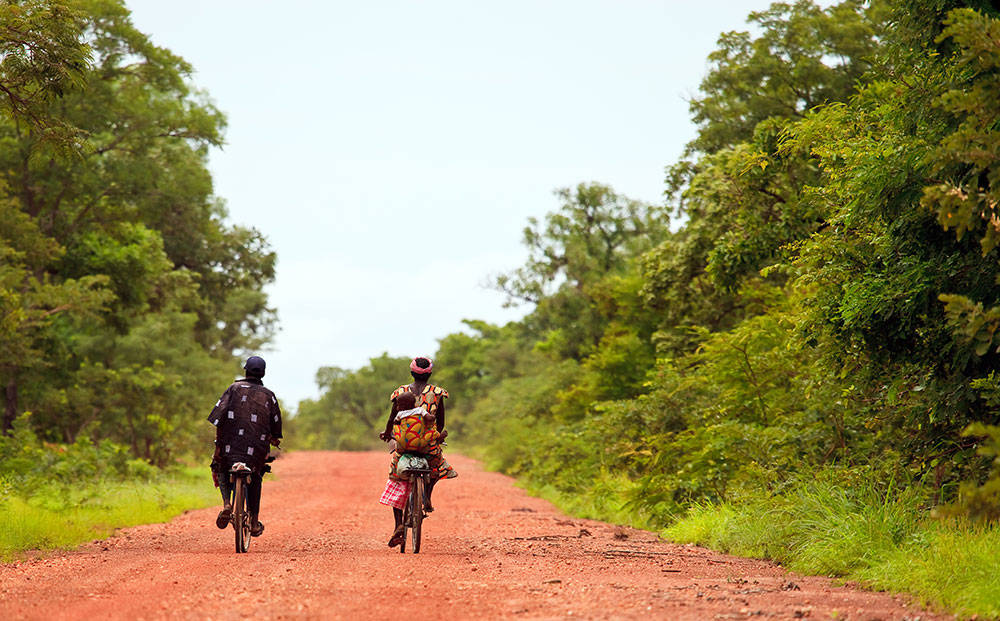
Burkina Faso is facing major challenges. But the West African country’s people retain hope and a determination to pursue development projects wherever possible. The OPEC Fund’s recent high-level mission highlighted the impact of education and health projects in particular, reaffirmed the organization’s commitment to the country and showed the potential of development to inspire hope.
One new loan, and two inaugurations under the aegis of the President
Loan signature
OPEC Fund Director-General Dr Abdulhamid Alkhalifa recently signed a US$20 million development loan to help finance Burkina Faso’s Agricultural Value Chain Support Project (PAPFA).
Dr Alkhalifa signed the loan in Ouagadougou with Burkina Faso’s Minister of Economy, Finance and Development, Lassané Kaboré. PAPFA aims to contribute to poverty alleviation and to enhance food security in Burkina Faso. Specifically, the project will help crop and vegetable farmers adopt efficient technologies related to the production, processing and storage of produce, ultimately enabling them to increase sales in local and regional markets.
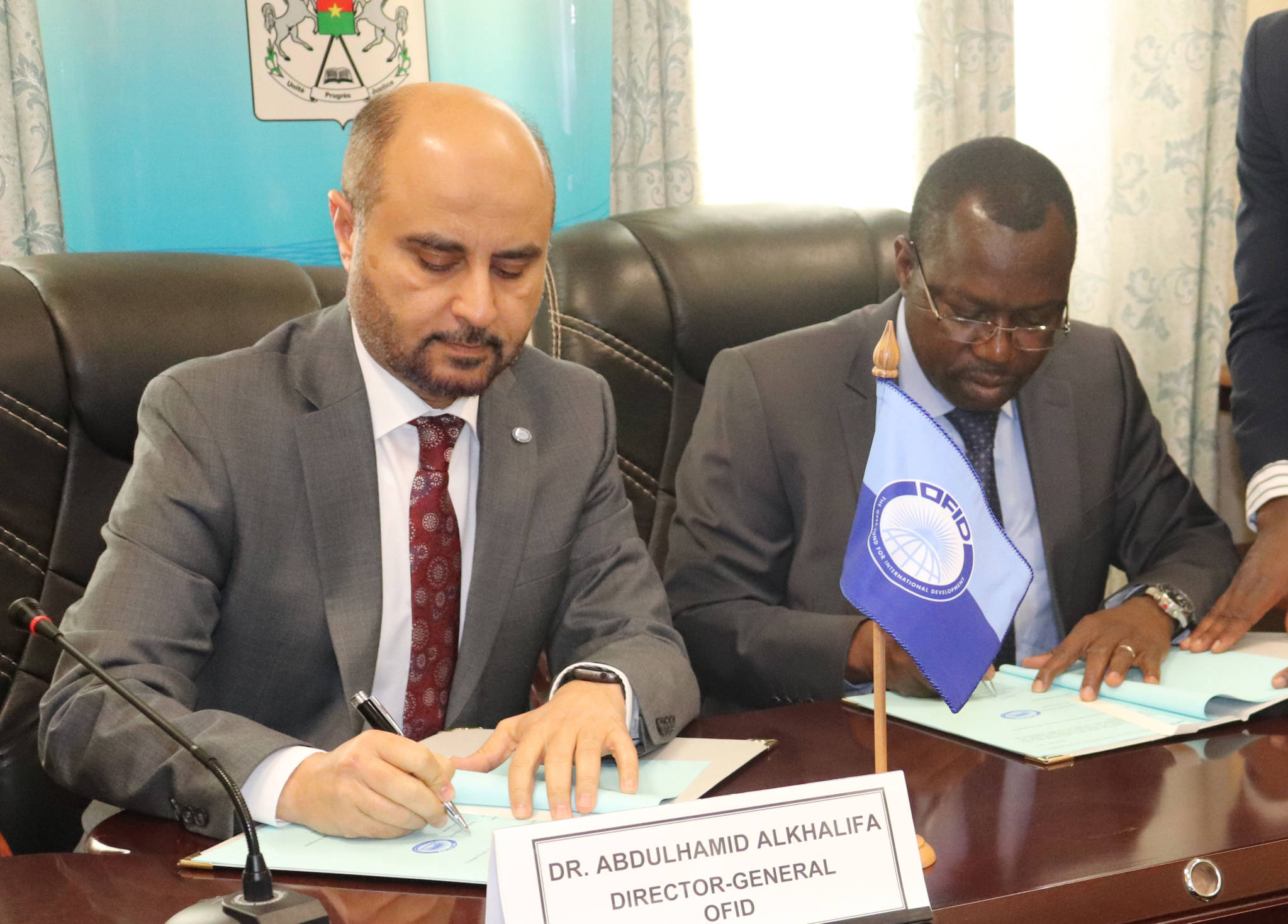
The OPEC Fund's Director-General Dr Abdulhamid Alkhalifa and Burkina Faso's Minister of Economy, Finance and Development Lassané Kabore.
Dr Alkhalifa said: “This latest OPEC Fund loan demonstrates our continued commitment to a striving country that retains hope, despite the challenges it still faces. It is our way of saying: ‘we are your partners’.”
University of Ouagadougou inauguration
While on the high-level mission to the West African country, Dr Alkhalifa attended the inauguration ceremonies of two major development projects co-financed by the OPEC Fund – the Hospital of Ziniaré and the University of Ouagadougou. The inaugurations were held under the aegis of the President of Burkina Faso, Roch Marc Kaboré.
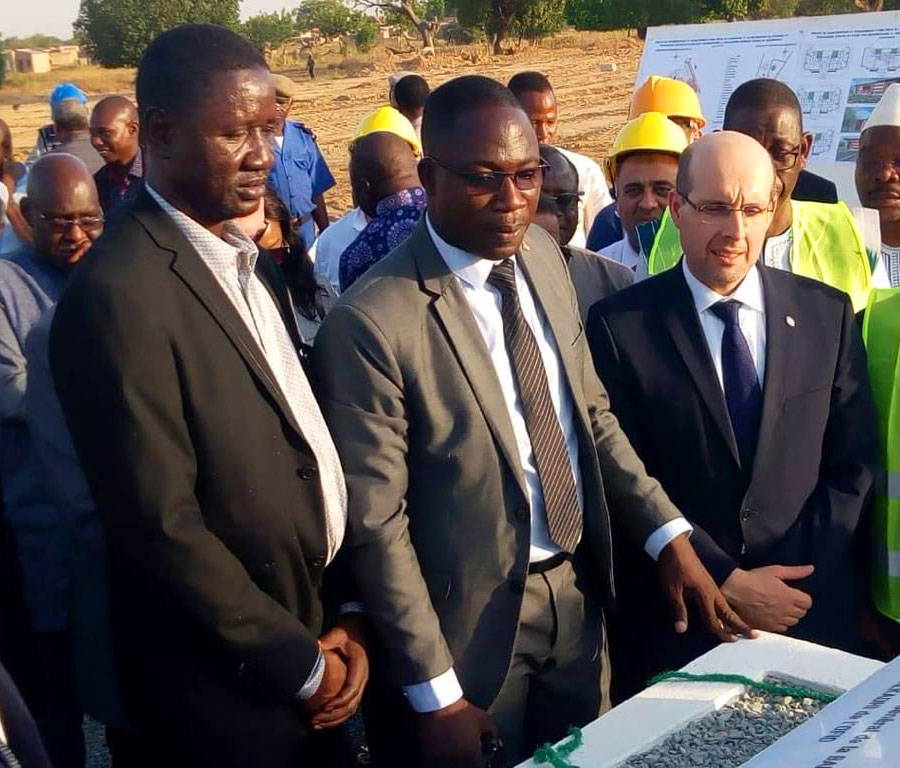
The University of Ouagadougou expansion project was co-financed by the OPEC Fund in partnership with the Arab Bank for Economic Development in Africa (BADEA) and the government of Burkina Faso. The new and expanded facilities include dormitories and provide a better academic environment. Approximately 18,500 on-campus students are expected to benefit.
Dr Alkhalifa said: “Ensuring inclusive and quality education for all – and promoting lifelong learning – is a fundamental ingredient to sustainable development. To see such a project come to life is inspiring and I believe this university will enable many people – young and old – to play a role in advancing the development of Burkina Faso, and more generally, in contributing toward a more equal global society.”
Recognition of the OPEC Fund’s continued support
At the ceremony, Dr Alkassoum Maïga, Burkina Faso’s Minister of Higher Education and Scientific Research, conferred Dr Alkhalifa with L’Ordre National de l’Etalon – a national honor in recognition of the OPEC Fund’s continued support of development in the country. The Minister conferred the honor on behalf of President Kaboré. Dr Alkhalifa said he was proud of the OPEC Fund’s work with Burkina Faso and honored to receive the decoration on behalf of the organization.
Ziniaré Hospital tour and inauguration
The Hospital of Ziniaré – a modern and fully equipped health center in the town of Ziniaré, 35 km from the capital Ouagadougou – is also co-financed by the OPEC Fund, BADEA and the government of Burkina Faso. The hospital provides access to specialized, high-quality healthcare services and is expected to improve maternal / infant health and fight diseases endemic to the area.
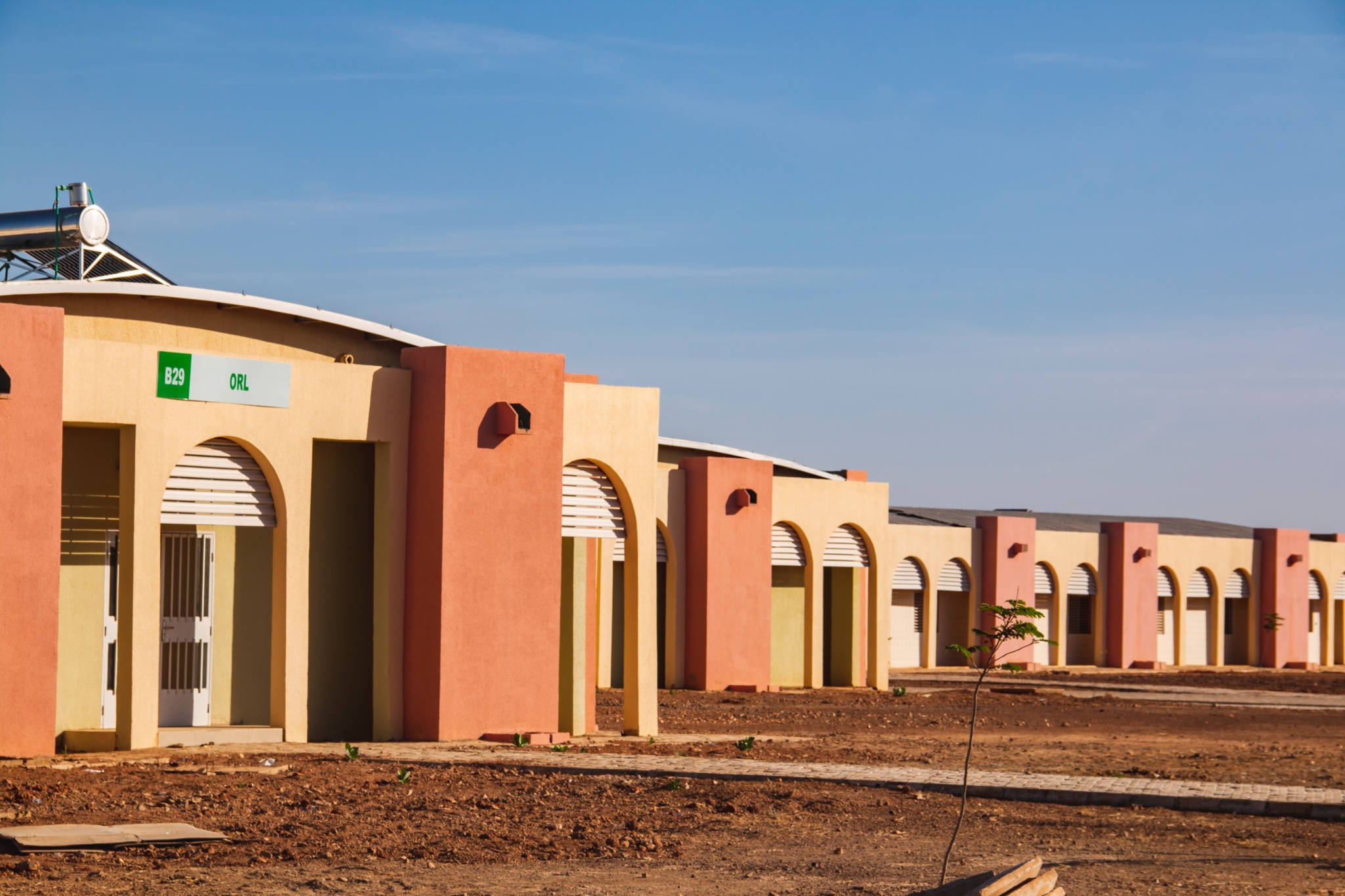
Dr Alkhalifa said: “The enjoyment of the highest attainable standard of health is one of the fundamental rights of every human being. The OPEC Fund is committed to supporting access to healthcare as a goal in itself, as well as to achieve the Sustainable Development Goals. Our commitment is clear: as of December 31, 2018, our cumulative approvals to development projects in the health sector was well over US$1 billion.”
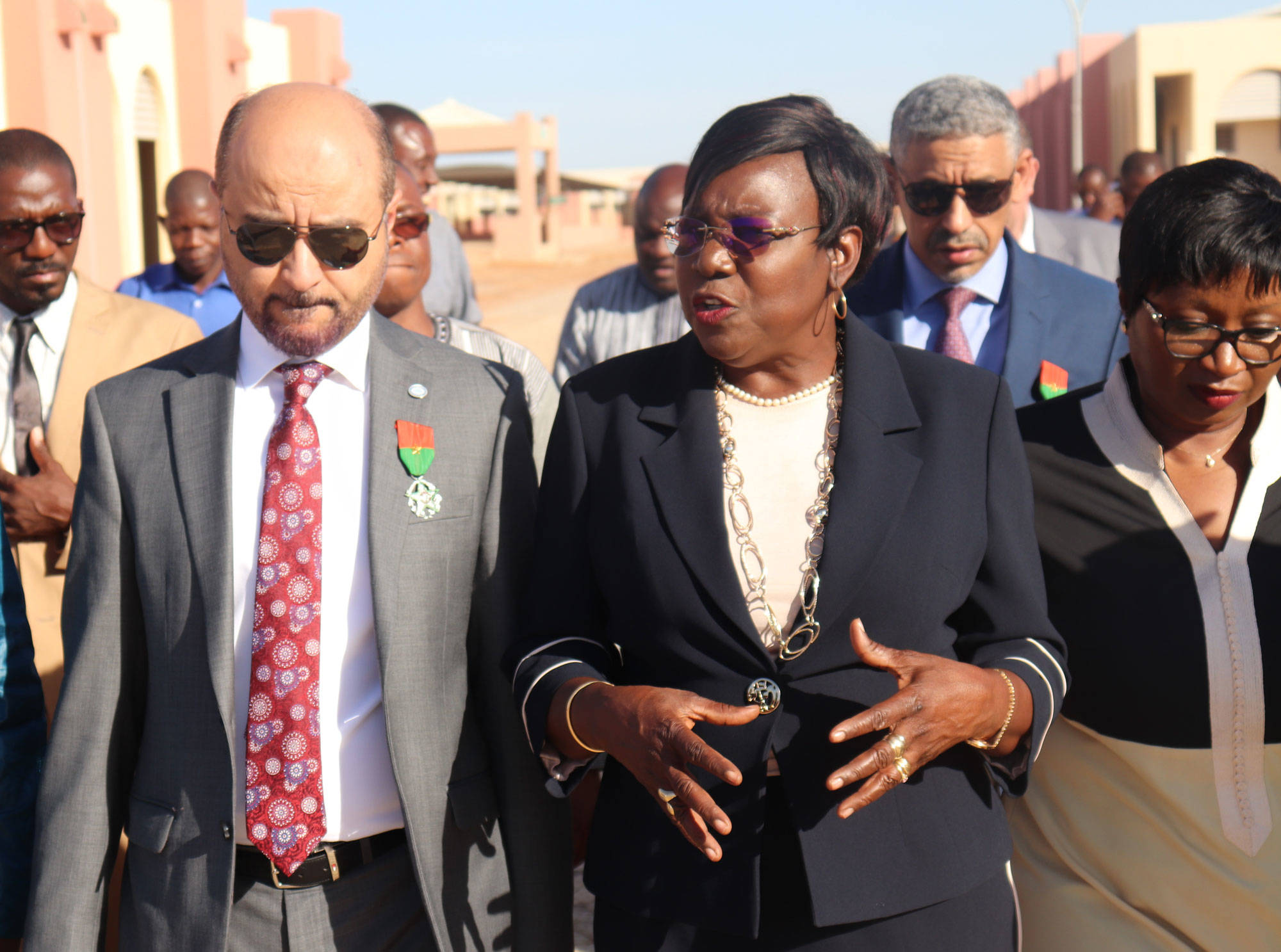
OPEC Fund Director-General with Burkina Faso’s Minister of Health Leonie Claudine Sorgho on a tour of the Hospital of Ziniaré.
The OPEC Fund has worked with Burkina Faso for more than four decades. During that time, the organization has approved more than 40 public sector loans amounting to nearly US$300 million to the country.
Up Close: OPEC Fund Officer Omar Al-Kadhi
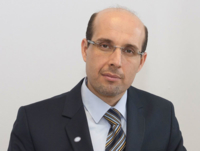
I’ve been Burkina Faso Country Officer since joining the OPEC Fund in 2014. My first mission to the country was two months after joining – it was an appraisal mission for the second phase of the Ouagadougou Water Supply project, which we subsequently approved. We recently completed the project and it has been very satisfying to see this on the ground. Witnessing people access fresh water in and around the capital Ouagadougou is wonderful.
The unique aspect of our profession is being able to witness an accomplished project. It is satisfying to see the development impact on beneficiaries. Our projects put human beings at the center, and during this mission, I could tell that the people of Burkina Faso recognized this, and very much appreciated it.
The OPEC Fund is a comparatively small institution, but we are very quick and agile. Our impact in the field goes way beyond our size. We are efficient in what we do and we do it well – that’s why people like to work with us.
At the University of Koudougou launching ceremony, I was among many different people, including students – the direct beneficiaries – and other stakeholders. I was asked to make a short speech and I have to admit it was the students I was worried about, not the ministers and officials. I didn’t know how they would react. After my speech, the students were clapping and came up to me to talk. I could feel their hope. It’s because they’d seen something tangible – something real – with our Ouagadougou University Phase 2 project, completed and ready to use by students in Ouagadougou. The construction quality and the time deadlines we met means that the Ouagadougou project is now an operation in Burkina Faso that everyone is speaking about. It gives other people hope, even outside of the project area.
Universities and hospitals are crucial for the future of people in Burkina Faso. The OPEC Fund is among the very few development finance institutions involved in the higher education sector in the country. As part of its national strategy, the government of Burkina Faso has started a gradual decentralization policy for higher education and research facilities. The OPEC Fund’s help has been requested and people have a lot of hope in our potential to support this policy.
We’re driven by the needs and aspirations of the government and the people. They are in the driving seat.”
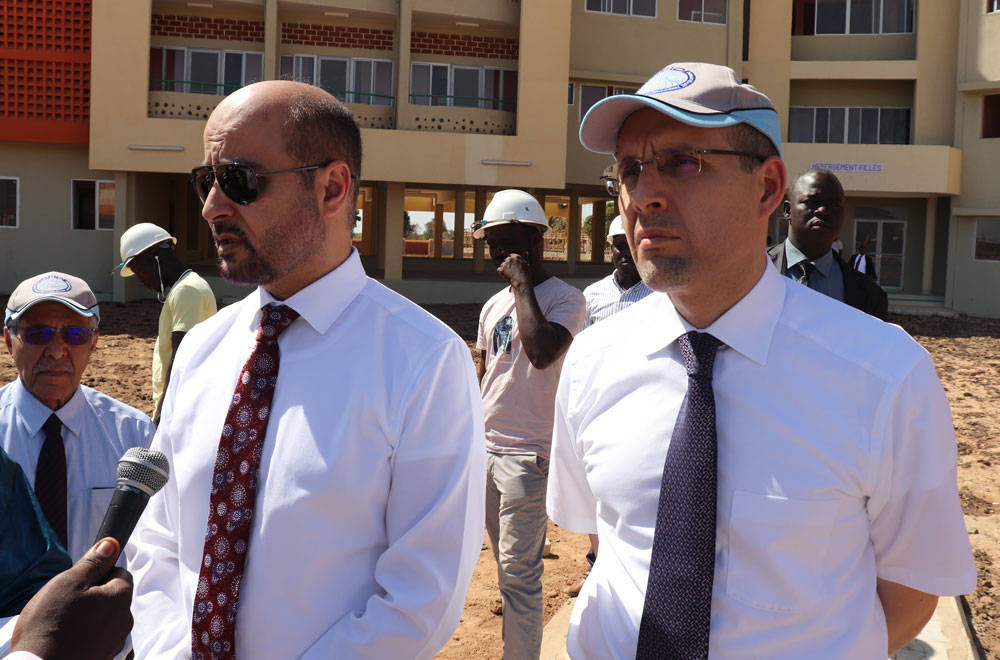
OPEC Fund Officer Omar Al-Kadhi (right) with Director-General at the inauguration of the University of Ouagadougou being interviewed for local media.
Ouagadougou Water Supply (Ziga Phase 2) Project
The OPEC Fund co-financed the construction of a dam at Ziga on the Nakambe River (known as the Ouagadougou Water Supply Project) and helped provide facilities, pipelines and equipment to treat and pump water to the capital Ouagadougou, to benefit more than 800,000 people. A second loan from the OPEC Fund in 2015 helped increase storage capacity and construct new pumping stations, benefiting more than 2 million people.
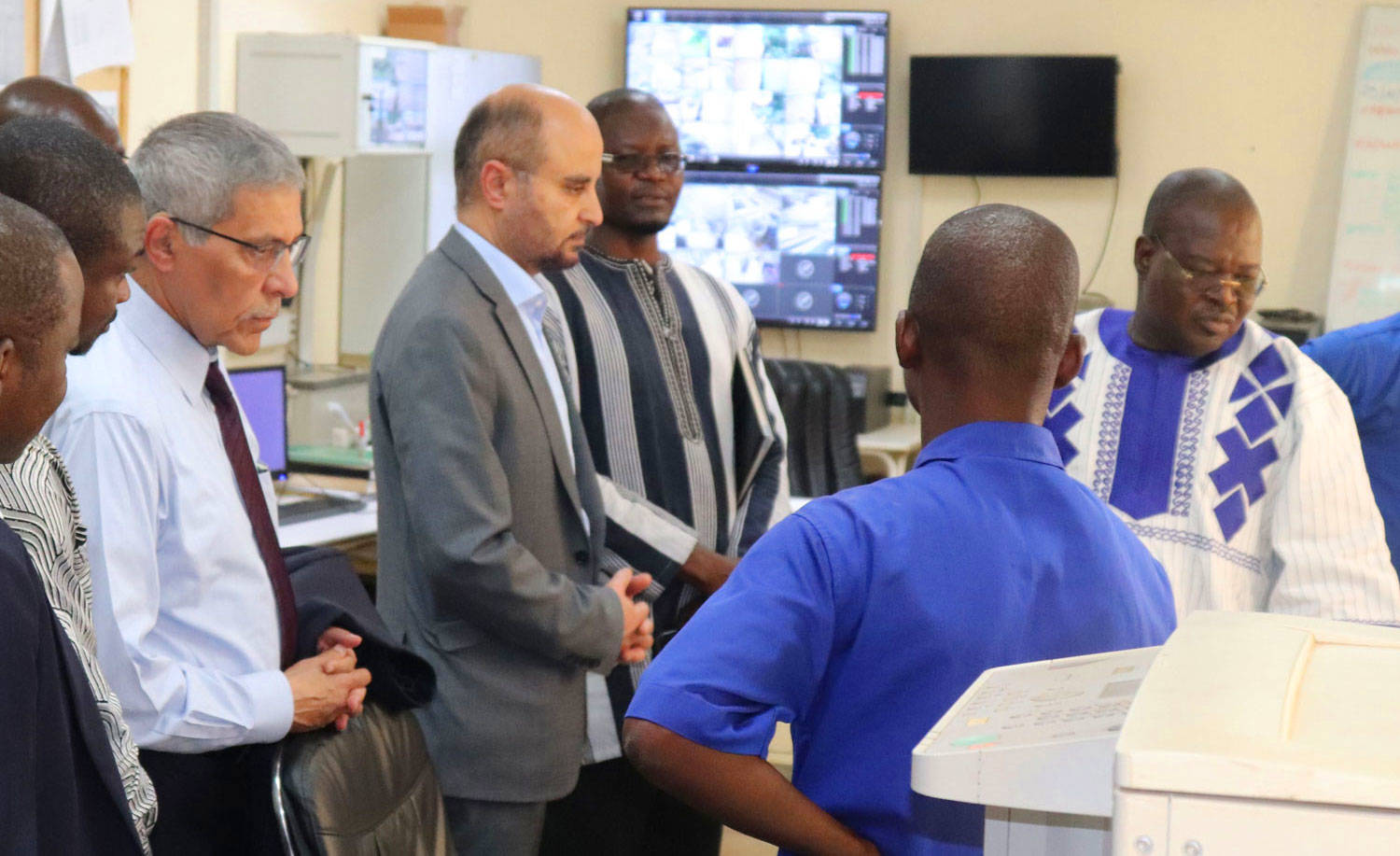
Touring facilities at the site of the OPEC Fund-supported Ouagadougou Water Supply project.
The project has improved living standards and health by providing access to safe drinking water and sanitation in impoverished areas in and around the capital Ouagadougou. Works included: increasing storage capacities and constructing new pumping stations between the Ziga dam and Ouagadougou; reinforcing and extending the water distribution network; and installing new connections and standpipes.
The OPEC Fund and BADEA
The OPEC Fund for International Development and the Arab Bank for Economic Development in Africa have worked together to support development on the African continent for several decades. The two organizations combine efforts with those of their African beneficiary countries, multilateral regional and international development agencies, bilateral aid agencies, and non-governmental organizations. Both organizations are also members of the Arab and Regional Coordination Group and work closely with strategic partners, including the African Development Bank (AfDB) and the World Bank (WB).